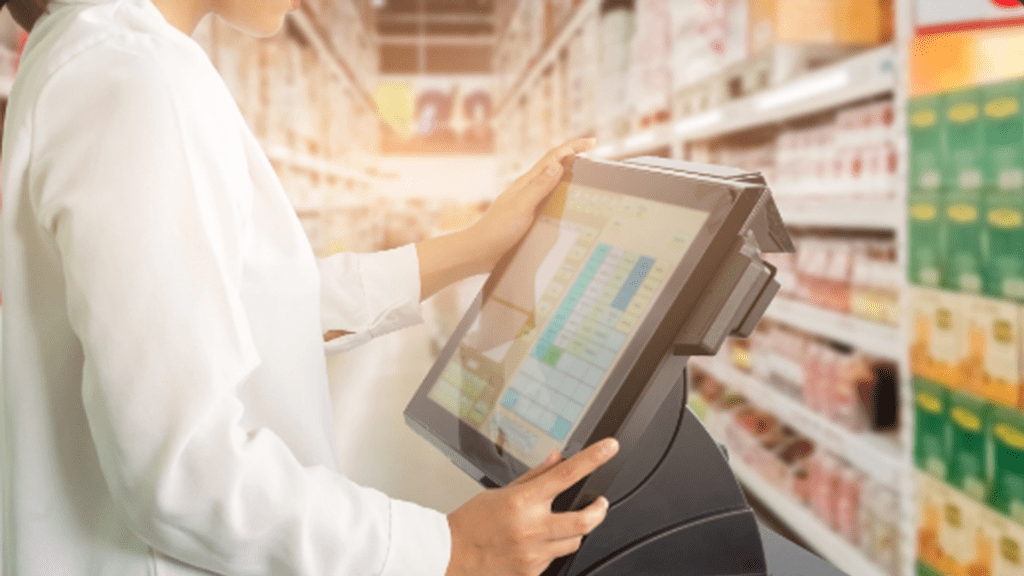
- Solutions
- Food & Beverage Ecosystem
Food & Beverage Ecosystem
Optimizing food & beverage operations and profitability demands a flexible, enterprise-class point-of-sale system. Is yours up to the task?
Go- Hospitality & Leisure Ecosystem
Hospitality & Leisure Ecosystem
From an individual location to an enterprise chain, get the most modern, mobile solution for managing your hospitality business
Go
- Inventory & Procurement Ecosystem
Inventory & Procurement Ecosystem
Designed to optimize foodservice and retail inventory and procurement operations for hotels, resorts, universities, restaurants and others.
Go
- Professional Services
Professional Services
Hospitality businesses are global, 24/7 operations with complex technology demands. You don’t have to go it alone.
Go
- Solution Studios
- Hotels
Hotels
Whether you operate a single boutique location or a large hotel chain, there’s an Agilysys hotel solution for you.
Go- Resorts
Resorts
Whether you operate a single boutique location or a large complex resort, your property is a unique operation that requires robust solutions supported by an experienced technology partner
Go
- Casinos
Casinos
You’re more than a gaming operation. You’re a full-service casino resort property and success isn’t about playing the odds, it’s about making the most of every revenue opportunity.
Go
- Tribal Gaming
Tribal Gaming
A leader in casino hospitality management solutions who respects the sovereignty of your nation.
Go
- Cruise Lines
Cruise Lines
Smooth seas ahead: technology solutions from Agilysys, a leader in cruise management systems.
Go
- Higher Education
- Corporate Dining
Corporate Dining
Identify emerging dining trends while aligning coverage with demand and capturing more revenue.
Go
- Healthcare
Healthcare
Delight patients & visitors, retain staff and grow margins with a suite of hospitality solutions for healthcare environments.
Go
- Life Plan Communities
- Foodservice Management
Foodservice Management
End-to-end foodservice management software solutions for optimum productivity and profitability.
Go
- Stadiums
- Restaurants
- Airports
Airports
Optimizing dozens of food & beverage outlets throughout your facility demands world-class POS performance combined with real-time operating insights.
Go
- Resorts
- Resources
- Articles
Articles
Access our library and read about the latest in emerging technology and other hospitality trends. Find tips and insights on accelerating business growth and improving guest satisfaction.
Go- Customer Stories
Customer Stories
Learn why so many businesses, small and large, partner with Agilysys for their hospitality technology needs.
Go
- Customer Videos
Customer Videos
Watch and learn what Agilysys customers have to say about their experiences with our solutions.
Go
- Product Resources
Product Resources
An in-depth collection of product information and datasheets. Read about the latest in hospitality technology features designed to solve the challenges faced by hospitality professionals around the globe.
Go
- Product Showcase
Product Showcase
Hear from industry professionals about the latest advancements, including tips and tricks, in hospitality and emerging technologies. Check out the library of demo videos and webinar recordings.
Go
- Webinars
Webinars
Watch and learn about the latest in successful technology trends and hear from hospitality professionals in this selection of interactive videos.
Go
- Industry Reports
Industry Reports
Important research and studies from across the hospitality industry. Find out what thought leaders are saying.
Go
- Customer Stories
- Company
- Leadership
- Solution Partners
Solution Partners
Agilysys has a broad collection of partners and APIs to help you assemble the perfect solution for you.
Go
- Our Customers
Our Customers
Discover how Agilysys customers like you are using our solutions to improve their business and guest experience.
Go
- Investor Relations
- News
- Events
Events
With the Agilysys commitment to 100% Hospitality solutions, we take industry events and conferences seriously. Please see where you can find Agilysys to learn more.
Go
- Career
- FAQS
FAQS
Go
- Solution Partners
- Support
- Contact Support
- Microsoft Patch Testing
Microsoft Patch Testing
See what Microsoft products and versions are currently support by Agilysys.
Go
- Payment Center
- RMA Requests
- Supply Order
Supply Order
Go
- Hospitality IQ
Hospitality IQ
Go
- Knowledge Center
Knowledge Center
Go
- Microsoft Patch Testing
- Blogs
- MyAgilysys
-
 Get a Demo
Get a Demo 877 369 6208
877 369 6208
×Home
☰- Explore
WHAT'S THE BUZZ IN HOSPITALITY?
Empowering Businesses: The Dynamics of POS Systems Unveiled
In the bustling arenas of modern commerce, the term "POS" resonates as a vital heartbeat, orchestrating seamless transactions and enhancing customer experiences. But what exactly is a POS system, and how does it work? In the always-evolving dance between customers, merchants, and technology, POS systems emerge as the central choreographers, ensuring that every purchase is smooth, secure, and streamlined. Let's delve into the depths of POS technology, unraveling its complexities and exploring the transformative impact it has on businesses across the globe.
1. Defining the Essence: What Is a POS System?
At its core, a Point of Sale (POS) system is a sophisticated amalgamation of hardware and software designed to facilitate transactions between businesses and customers. Traditionally, POS systems were synonymous with cash registers. However, in the digital age, these systems have metamorphosed into multifaceted platforms encompassing electronic cash registers, computers, tablets, and specialized software. A contemporary POS system is a comprehensive solution that not only processes payments but also manages inventory, tracks sales, generates reports, and enhances customer interactions.

2. The Hardware Components: From Terminals to Peripherals
The hardware components of a POS system form its tangible backbone. These include:
POS Terminal: This is the central hub, often a computer or tablet, where transactions are processed. Modern terminals come with touchscreen interfaces for intuitive use.
Barcode Scanners: These handheld devices scan product barcodes, swiftly adding items to the transaction list.
Receipt Printers: Specialized printers generate receipts, providing customers with transaction details and essential information.
Card Readers: POS systems integrate card readers that process credit, debit, and other payment cards securely.
Cash Drawers: These drawers safeguard cash and coins, opening only after a successful transaction.
Peripherals: Additional devices like customer displays and weight scales can be integrated based on business needs.
3. The Software Architecture: Navigating the Digital Realm
While hardware forms the system's body, software is its soul. Modern POS software is robust, versatile, and customizable. It performs a myriad of functions, including:
Transaction Processing: The software processes various payment methods, ensuring secure and swift transactions.
Inventory Management: Businesses can track product quantities, manage stock levels, and receive alerts for low inventory, facilitating efficient restocking.
Sales Reporting: Detailed reports provide insights into sales patterns, bestselling items, and revenue streams, aiding businesses in strategic decision-making.
Hospitality & Leisure Ecosystem
From an individual location to an enterprise chain, get the most modern, comprehensive property management solutions for managing your hospitality business.

Customer Relationship Management (CRM): POS systems store customer data, enabling businesses to offer personalized experiences, track purchase histories, and launch targeted marketing campaigns.
Integration Capabilities: POS software can integrate with accounting software, e-commerce platforms, and other business tools, streamlining operations and data management.
4. How POS Systems Transform Businesses: A Symbiotic Relationship
In the dynamic world of commerce, POS systems serve as catalysts for operational efficiency and customer satisfaction:
Enhanced Efficiency: By automating transactions and inventory management, POS systems save time and reduce human error, allowing businesses to focus on core activities.
Data-Driven Insights: Through robust reporting features, POS systems transform raw data into actionable insights. Businesses can analyze sales trends, customer behaviors, and inventory turnover rates, enabling informed decisions.
Customer Experience: POS systems enable smooth and secure transactions, ensuring a hassle-free experience for customers. Personalized interactions, based on CRM data, enhance customer satisfaction and loyalty.
Adaptability: Whether it's a small boutique or a large restaurant chain, POS systems can be tailored to specific business needs. They evolve with businesses, accommodating expansions and changing requirements seamlessly.
Financial Accuracy: POS systems reduce the risk of financial discrepancies. Accurate tracking of sales and expenses aids in precise financial reporting and taxation, ensuring compliance with regulations.
5. The Future Horizon: Innovations and Trends
As technology advances, POS systems continue to evolve. The future holds exciting prospects, including:

Food & Beverage Ecosystem
Optimizing food & beverage operations and profitability demands a flexible, enterprise class point-of-sale system. Is yours up to the task?
Mobile POS: With the proliferation of smartphones and tablets, businesses are adopting mobile POS solutions. These portable systems empower staff to assist customers anywhere in the store, enhancing flexibility and customer engagement.
Contactless Payments: NFC (Near Field Communication) technology is facilitating contactless payments through mobile wallets and contactless cards. POS systems are adapting to support these secure, convenient transactions.
AI and Machine Learning: Predictive analytics, powered by AI and machine learning algorithms, are becoming integral to POS systems. These technologies analyze vast datasets, offering businesses insights into customer behavior and demand patterns.
Blockchain Security: The implementation of blockchain technology enhances transaction security. Encrypted ledgers ensure data integrity and build trust between businesses and customers.
In the symphony of commerce, POS systems compose a harmonious melody, orchestrating transactions, enhancing efficiency, and elevating customer experiences. As businesses navigate the intricate notes of modern commerce, embracing the transformative power of POS technology becomes not just an option but a strategic imperative. In the fusion of hardware, software, and innovation, businesses find the rhythm of success, ensuring that every transaction resonates with precision, reliability, and customer-centricity.

The 2025 Global Hospitality Study
Download Study
Visit Agilysys At These Events
Learn More
2025 Hospitality Industry Conferences You Shouldn't Miss
Read MoreCategories
- Contact Support
- Leadership
- Articles
- Hotels
- Food & Beverage Ecosystem





